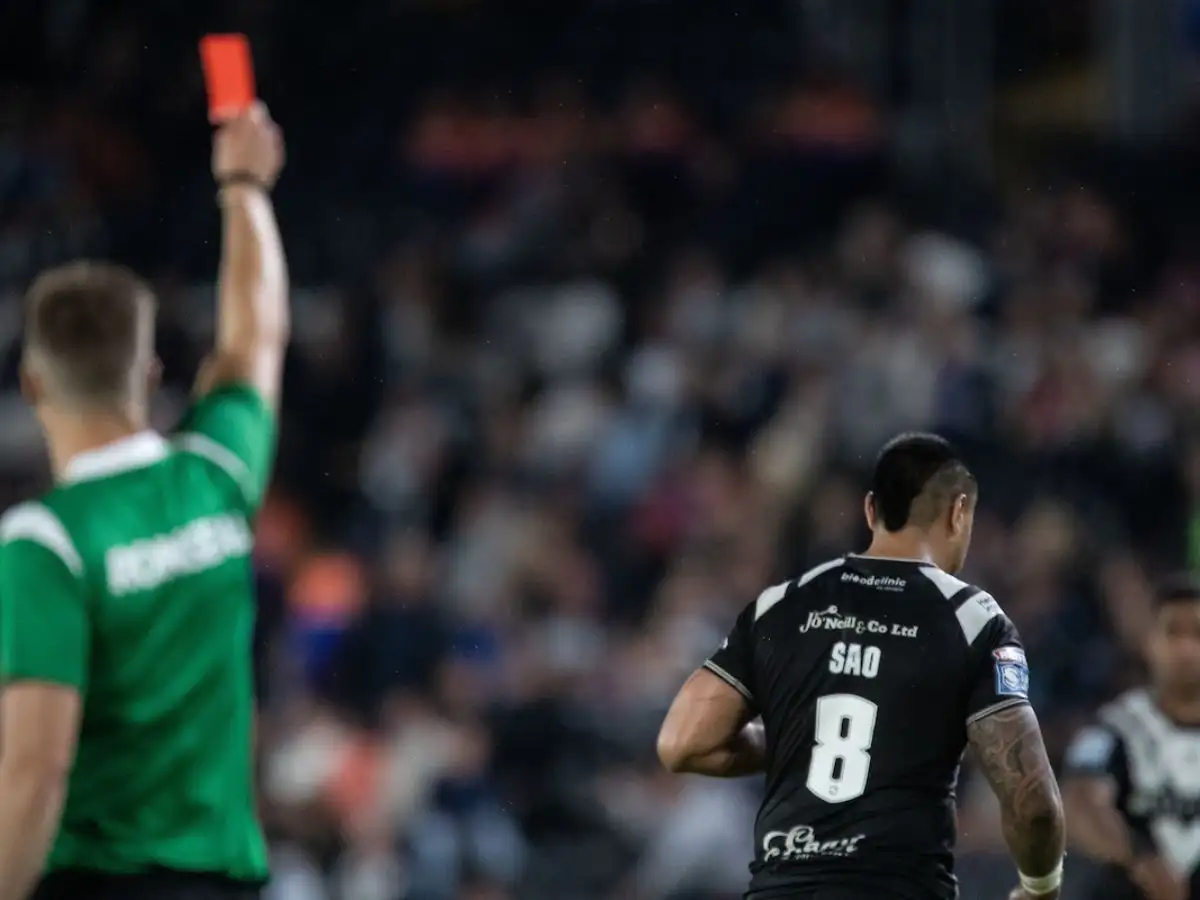Disciplinary: Proposal to increase fines and decrease ban lengths

Proposed changes to the disciplinary process could see fines increased, but the lengths of bans reduced following a consultation with clubs.
The disciplinary system suffered much criticism last season, following a spate of bans which dominated the game’s talking points week-to-week, while there was even controversy over the Super League Grand Final – where Morgan Knowles successfully appealed a ban at the second attempt and was allowed to play.
There were arguments that some bans were too harsh and also when clubs appealed, they were at times slapped with further bans for frivolous appeals.
Despite the previous system having been agreed by the clubs, changes were first discussed during a review starting in July.
The Rugby League Council will hear proposals to change the On Field Misconduct Rules at a meeting tomorrow, Wednesday.
What the proposed changes to the RFL disciplinary system?
If the proposals are passed, a Grade A offence would be punished either by a caution or a fine, whereas previously it could have resulted in a one-match ban. A Grade B offence could be punishable by either a fine or a one-match ban, as opposed to a one or two match ban as previous.
Only Grade E and F offences will now lead to an automatic tribunal, with Grade A-D offences included within the penalty notice framework. Grade D offences will carry a suspension range of 2-3 matches and will include a fine.
| GRADE | NORMAL SUSPENSION RANGE | PREVIOUS SUSPENSION RANGE? |
| A | 0 – Fine | 0 – 1 |
| B | Fine – 1 | 1 – 2 |
| C | 1-2(and fine) | 2 – 3 |
| D | 2-3(and fine) | 3 – 5 |
| E | 3-5(and fine) | 4 – 8 |
| F | 6+ or period suspension (and fine) | 8+ or period suspension |
The proposals also include diluting the impact of previous offences, with the top end grading only applying to players who have three previous offences, rather than two as previous.
Robert Hicks, the RFL’s Director of Operations and Legal, said: “We always recognised that 2022 would be a challenging season for our disciplinary procedures, given the amount of change which was introduced – and we therefore envisaged this off-season as being an appropriate time for a thorough review.
“As with the previous review in 2017, it was essential that this review involved and in many ways was driven by representatives from clubs at all levels, as well as having a strong players’ voice.
“The findings of the review underline both the difficulties faced by the members of the Match Review Panel and the Operational Rules Tribunal, and the fact that they perform an essential role for the sport to a consistently high level.
“The review has reinforced the importance of a robust response to foul play, especially when it involves contact to the head and whiplash, and as such the changes introduced for 2022 in terms of chargeable offences have been maintained.
“A number of changes have been recommended for 2023, in all cases adjustments to recognise the changing landscape, while maintaining the emphasis on player safety – and increasing player accountability. It is important that all stakeholders understand the need to change behaviour and we believe these changes are best placed to do this.”